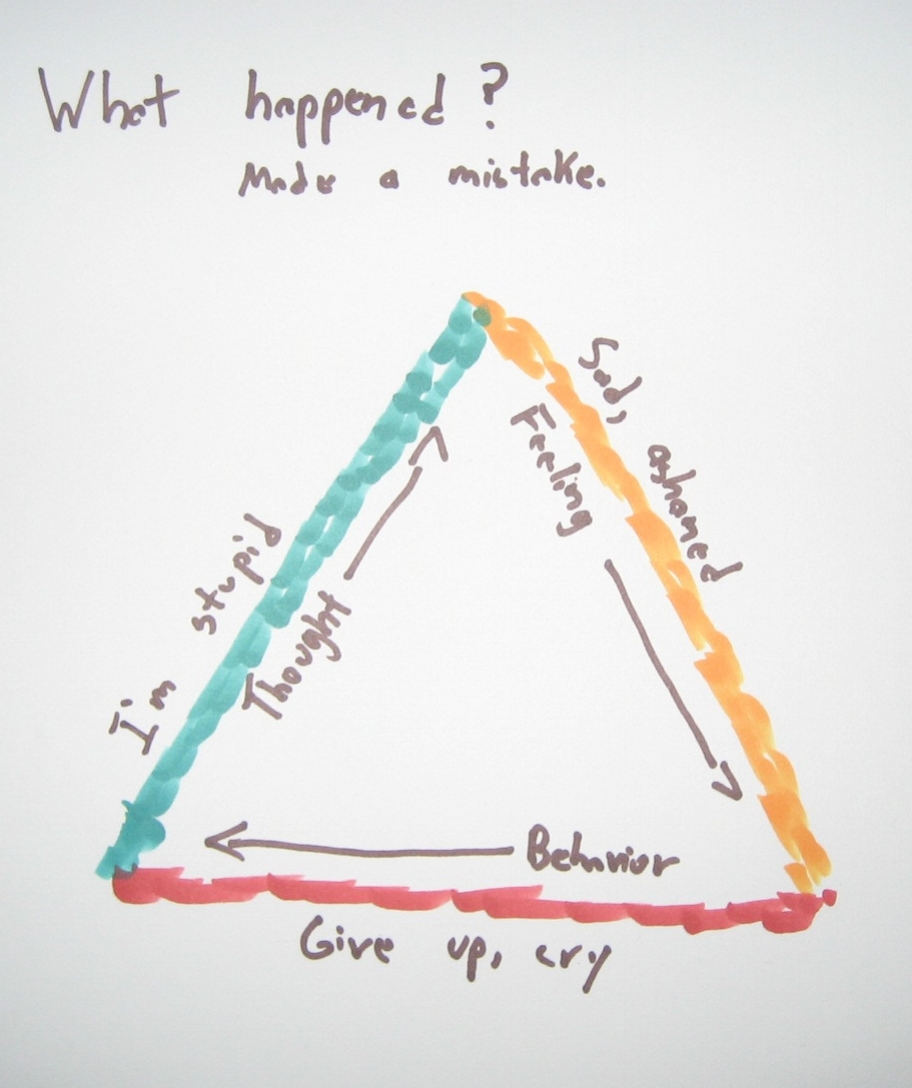School-age children are developing the skills to think critically about their actions and make more rational and healthy decisions. Adults can support children’s skill development by encouraging them to connect what they were thinking and feeling when a problem behavior occurred. This teaches children to reflect on how their thoughts and feelings influence their behavior either positively or negatively. It can also demonstrate how their thoughts might be incorrect and cause unwanted negative feelings. These are called thinking errors.
For example, Emma struggles with multiplication. She thinks her peers judge her when she gets a question wrong in class, and she feels embarrassed and ashamed. Emma begins to find ways to avoid math class by going to the bathroom or getting a drink of water. She continues to fall behind due to the time she spends outside of class, and her fear and avoidance intensify until she begins having daily stomach aches that reinforce her desire to leave the classroom.
The following thought, feeling, behavior triangle is a helpful exercise that adults can do with children. Keep in mind that the best time to use this exercise is outside of the event when your child is calm and regulated. Encourage your child to reflect on potential thinking errors by asking them what they could have thought, felt, and did differently and how those differences would have changed the outcome of events. As your child increasingly reflects on their thoughts, feelings, and behaviors, they will develop self-regulation skills and will be better able to adapt to their environments.

Leave a Reply